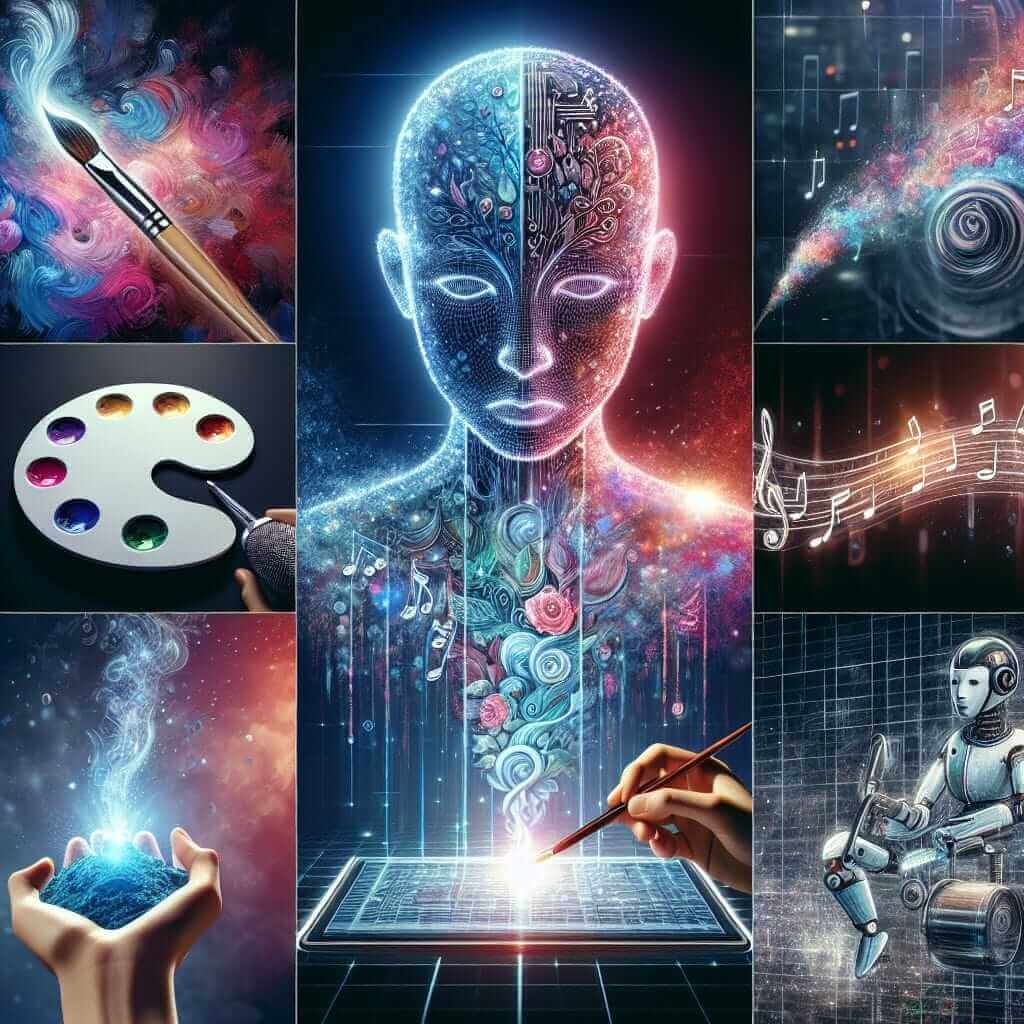The Reading section of the IELTS exam can be a challenging yet rewarding part of the test. The aim is to assess your ability to understand and interpret academic texts. One theme that is growing in relevance due to its increasing influence is the impact of Artificial Intelligence (AI) on creative industries. This article dives deep into this topic, providing a comprehensive reading practice exercise, along with questions, answers, and analyses.
Why This Topic is Important
Artificial Intelligence has been a popular subject in various IELTS Reading sections, particularly in recent years. By understanding this topic, you not only prepare for potential exam questions but also enhance your awareness of contemporary issues that could appear in other parts of the IELTS exam.
The Impacts of AI on Creative Industries
Reading Passage
Instructions: Read the following passage carefully and answer the questions that follow.
The infusion of Artificial Intelligence (AI) into creative industries marks a significant shift in how art, music, writing, and design are produced. AI algorithms like GPT-3 can generate human-like text, DALL-E can create images from textual descriptions, and AIVA can compose music. Such advancements have ignited debates on the authenticity and originality of AI-generated content.
One key benefit of AI in creativity is efficiency. AI tools automate repetitive tasks, streamline workflows, and assist artists in generating new ideas. For example, designers use AI to create initial sketches and concepts that would take humans much longer to produce. Additionally, AI can analyze consumer preferences, allowing marketers to tailor their content more precisely.
Despite the benefits, the rise of AI in creative fields also raises ethical and economic concerns. On the one hand, there is the fear of job displacement. Automation might reduce the need for human labor in certain roles, threatening livelihoods. On the other hand, there are questions about copyright and intellectual property. Who owns a piece of music composed by an AI?
Moreover, the authenticity of AI-generated content is a contentious issue. While AI can emulate styles and patterns, it lacks the emotional depth and experiential foundation that human creators bring to their work. Critics argue that AI-generated art might lack the soul that characterizes true artistry.
In summary, AI has a substantial role in the creative industries, bringing both opportunities and challenges. As AI continues to evolve, society must navigate these complexities to ensure that creativity remains a uniquely human endeavor.
Questions
Multiple Choice
- What is one advantage of AI in creative industries mentioned in the text?
- A. Increased costs
- B. Job creation
- C. Enhanced efficiency
- D. Reduced content quality
True/False/Not Given
- AI has eliminated the need for human involvement in the creative process.
- The passage mentions DALL-E as an AI tool for creating music.
Matching Information
- Match the AI tool with its application:
- GPT-3
- AIVA
- DALL-E
- Applications: (a) Image generation (b) Text generation (c) Music composition
Short-answer Questions
- What are the ethical concerns related to AI in creative industries, as discussed in the passage?
- Why do critics argue that AI-generated art might lack authenticity?
Answer Key & Explanations
Multiple Choice
- C. Enhanced efficiency
- Explanation: The text highlights that AI tools streamline workflows and automate repetitive tasks, thus improving efficiency.
True/False/Not Given
- False.
- Explanation: While AI assists in creative processes, it has not eliminated the need for human involvement.
- Not Given.
- Explanation: The passage mentions DALL-E for creating images, not music.
Matching Information
- GPT-3 – (b) Text generation
- AIVA – (c) Music composition
- DALL-E – (a) Image generation
- Explanation: The passage clearly delineates the applications of each AI tool.
Short-answer Questions
- Ethical concerns include job displacement and questions about copyright and intellectual property.
- Explanation: The passage outlines fears of job loss and ambiguities regarding ownership of AI-generated content.
- Critics argue that AI-generated art might lack emotional depth and experiential foundation.
- Explanation: The passage discusses how AI emulates styles but might miss the ‘soul’ of human artistry.

Common Mistakes
- Overlooking details: Students often miss out on subtle details that are crucial for answering True/False/Not Given questions correctly.
- Incorrect Matching Information: Wrongly matching the applications of AI tools because they do not pay close attention to the text.
- Vocabulary Misinterpretation: Misunderstanding key vocabulary can lead to erroneous answers, especially in multiple-choice questions.
Vocabulary
- Infusion (noun) /ɪnˈfjuː.ʒən/:
- The addition of one thing to another to make it stronger or better.
- Authenticity (noun) /ˌɔː.θenˈtɪs.ɪ.ti/:
- The quality of being real or true.
- Emulate (verb) /ˈem.jə.leɪt/:
- To imitate with the effort to match or surpass.
Grammar Focus
- Subjunctive Mood: Used to express wishes or hypothetical situations. For example: “Critics argue that AI-generated art might lack the soul…”
- Usage: Verb + that + subjunctive verb form (generally the base form of the verb).
Expert Tips for a High Reading Score
- Skim and Scan: Before diving into the details, skim the passage to get a general idea and then scan for specific information.
- Underline Key Information: Literally underline or highlight key points as you read through the passage.
- Time Management: Practice managing your time effectively; allocate no more than 20 minutes per passage.
- Expand Your Vocabulary: Regularly read a variety of materials to build a robust vocabulary base.
By understanding the intricate impacts of AI on creative industries, you not only prepare for the IELTS Reading section but also gain insights into a topical issue that resonates across various academic and professional fields. Keep practicing and harness these skills to excel in your IELTS exam.
For additional resources, consider reading our article on The Influence of Artificial Intelligence on Creative Industries.